Introduction
The world of commerce is majorly driven towards growth through B2B marketing, which caters to selling products or services to other businesses. Unlike B2C marketing, B2B marketing focuses on forging a relationship with the organizational decision maker. This is about selling services, relevant ads, professional ad creatives that are need-based and address the commercial wants.
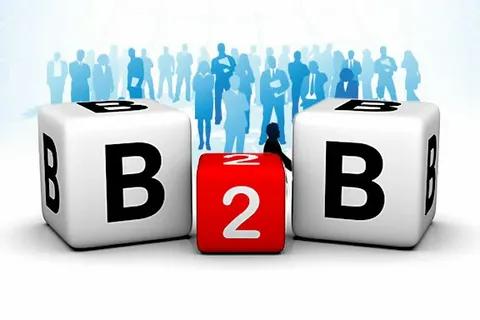
What is B2B marketing?
B2B stands for “business-to-business.” It simply refers to transactions, marketing strategies, and interactions where one business provides goods or services to another business. It may range from a software company offering a CRM solution to a logistics provider delivering transportation services for retailers.
B2B marketing is a bit more custom-tailored. Rather than flashy ad campaigns that appeal to people’s emotions, content marketing, precise job ads, and essential cookies to optimize the website are some of the most important strategies that help businesses communicate the right message to the right audience.
Why is B2B marketing important?
The ultimate objective of B2B marketing is to develop ongoing relationships that provide a predictable stream of revenue. Companies depend on B2B strategies to:
Gain the trust of potential clients.
Show them what unique value their products or services bring to a company’s operations.
Offer solutions that will make an operation more efficient, cost-effective, or productive.
Core Components of a B2B Marketing Strategy
- Buyer Personas Understanding: Buyers in B2B are professionals who seek solutions for organizational issues. A clearly defined buyer persona aids in creating relevant ads and **professional ads.
- Content Marketing: Whitepapers, case studies, blogs, and video drive engagement and showcase a business’s expertise.
- Targeted Marketing: From social media sites like LinkedIn to targeted email campaigns, effective audience reach requires thoughtful use of data and consent settings.
- Data-Driven Decisions: Measuring the success of campaigns with tools ensures better resource allocation and fine-tuning of marketing strategies.
Navigating Digital Channels in B2B Marketing
Digital transformation has revolutionized B2B marketing. Today, businesses depend on essential cookies to collect data and non-essential cookies to gain insight into customer preference. These insights enable the delivery of relevant ads while considering privacy through clear consent settings.
From optimizing a website for search engines to crafting high-performing job ads, digital channels offer endless opportunities to grow your network and generate leads.
Tools and Technologies in B2B Marketing
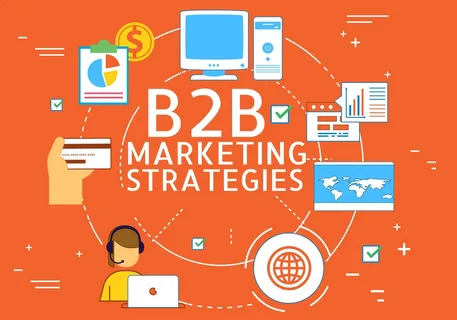
In the world of ever-changing scenarios in B2B marketing, correct utilization of tools and technologies remains indispensable when it comes to planning an effective marketing strategy.
Whether it be content marketing, running relevant ads, or targeting professionals through job ads, these are the tools that have enabled a business to automate processes and keep a track record, right down to offering personalized experiences to target audiences.
The Role of Tools in B2B Marketing What is B2B? Basically, B2B deals with selling products or services to another business entity. As opposed to B2C, which is targeted at a mass audience, B2B marketing needs to be very focused. Tools and technologies make it easier to collect data, run campaigns, and measure their results. They also support compliance with data protection legislation, allowing the right consent and correct **cookie settings.
A set of must-have tools is mandatory for a strong B2B marketing strategy.
1. Customer Relationship Management (CRM) Software
The system, such as Salesforce or HubSpot, helps to systematically track and record interactions with prospects and customers.
- Allows one to show targeted, relevant ads based on how the client behaves.
ensures the management of the sales pipeline, making professional ad and outreach campaigns even more effective.
provides facilities that can be exploited to combine efforts in content marketing.
2. Marketing Automation Platforms
Automation tools such as Marketo, Pardot, or ActiveCampaign enable a company to:
Automate email campaigns and follow-ups, nurturing leads more effectively.
Use data from essential cookies and non-essential cookies for better targeting.
Schedule and publish content across multiple channels.
3. Content Marketing Tools
Platforms like BuzzSumo, SEMrush, and Grammarly help in creating and optimizing content for **B2B audiences.
Identify trending topics in the *B2B marketing* space.
Improve the SEO of blogs, white papers, and case studies.
Ensure that content marketing aligns with audience preferences.
Creating Buyer Personas for B2B
In B2B marketing, one should know his audience. Unlike in B2C, where often marketing caters to the personal likes and preferences of people, B2B marketing is very much about professional needs on the part of the organizations or decision-makers. A precisely defined buyer persona should be the backbone of any well-developed marketing strategy.
What is a Buyer Persona in B2B Marketing?
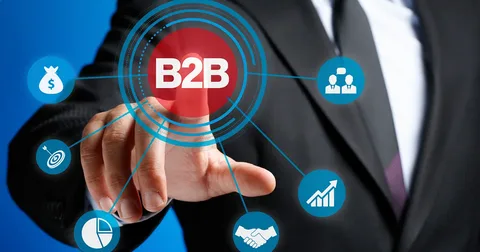
A buyer persona is the description of your very ideal customer, supported by data, research, and insight. In B2B, this is a description of the important decision-maker or influencer in another business with whom one would want to engage via a product or service. These personas help frame content marketing, build targeted advertisements, and construct job postings.
Why Buyer Personas Matter in B2B Marketing
In the cutthroat world of B2B, one-size-fits-all approaches simply will not do. Buyer personas will help your business:
Tailor marketing strategies to specific industries, roles, or business sizes.
Use essential cookies and non-essential cookies in ways which make certain that the right people see your message.
Create professional ads and run highly targeted campaigns.
- Comply with all relevant privacy legislation using appropriate consent settings.
How to Develop Buyer Personas for B2B
1. Gather Data
Start off with gathering data from your existing customers, website analytics, and CRM systems. Use tools to analyze behaviour on things such as:
What services do they use the most?
What type of content marketing do they like?
How they react to relevant ads and promotions.
2. Identify Key Demographics
In B2B marketing, professional attributes include:
Company role/job title/responsibilities.
Company size and industry.
Challenges/pain points/business objectives.
3. Segment by Behavior
Tap into the information from necessary cookies and unnecessary cookies to determine trends in behavior.
What do they download?
Which site or service pages are they on most?
How do they interact with your job postings and your emails?
4. Understand Their Buying Behavior
In B2B, buying decisions are hardly made by one person. Outline the:
Decision-maker (e.g., CEOs, managers).
Influencers- those who influence a purchase decision, like team leads or department heads.
Stakeholders who have to give approval for purchases.
5. Create a Persona Profile
Combine all your data to create a crystal clear profile. This includes:
Name or title for the persona, such as “Tech-Savvy Procurement Manager.”.
Role and responsibilities within the company.
Their goals, challenges, and how your services solve their problems.
6. Test and Refine
Buyer personas evolve over time. Be regularly reviewing:
Campaign performance.
Lead and client feedback.
Make the personas evolve by understanding new trends or changes in the scenario of B2B marketing.
Buyer Personas in Strategies for B2B Marketing
After creating your buyer personas, use them to feed into your marketing strategy:
Content Marketing: Provide whitepapers, case studies, and blogs related to the challenges and goals of that persona. Relevant Ads: Run targeted campaigns which will resonate with their industry and role.
Professional Ads**: Highlight the value of your *services* to their needs.
Leverage cookie usage and consent settings to offer personalized user experiences.
And that’s it. If you need help with any other section, feel free to ask.
Measuring Success in B2B Marketing
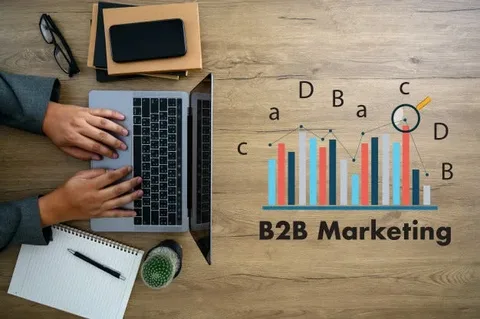
Being successful in B2B marketing requires measuring the effectiveness of your marketing strategies in today’s competitive environment. Measuring success extends beyond website traffic; it’s how your work translates to actually turning those prospects into customers and building sustainable business relationships.
Why Measuring Success Matters in B2B Marketing
In B2B, the sales cycles are longer and many times multistakeholder decisions need to be made. This complexity is what makes a performance track of critical importance toward understanding what works and ways to optimize effort. A more robust measurement helps businesses:
Allocate resources effectively.
Improve content marketing efforts.
Deliver relevant ads and professional ads, tailored to target audiences.
Ensure compliance with data privacy regulations, including the use of essential cookies and obtaining proper consent.
Key Metrics for Measuring Success in B2B Marketing
1. Lead Generation Metrics
Number of Leads: “Keep track of the volume of leads from different sources – marketing strategies, which could include content marketing or paid campaigns.”
Lead Quality: Ensure that generated leads are in line with your buyer personas and overall business goals. Good-quality leads are closer to conversion.
Cost per Lead (CPL): Gauge how much you invest in reeling in a lead and compare that to the revenue generated.
2. Conversion Rates
Monitor the number of leads that move through your sales funnel, from first contact to customers.
Check the conversion of specific services, job ads, or relevant ads in order to identify the best channels.
3. Engagement Metrics
Website Traffic: Leverage tools to quantify visitor behavior, such as time of stay on pages, bounce rate, and click-through rate.
- Content Performance: Identify those content marketing assets-blogs, white papers, and the like-that yield the highest volume of engagement and leads.
Email open and click rates: Assess the efficiency of email in driving interest.
4. Return on Investment (ROI)
Calculate the amount of return on investment to evaluate profitability from your B2B marketing activity:
Revenue Growth: Attribute how much revenue your campaigns drive in versus cost. Lifetime Value (LTV): Determine a customer’s total revenue potential over time.
5. Customer Retention Metrics
In B2B, building long-term relationships is just as important as acquiring new customers. Track:
Retention Rate: The number of customers who remain with your services.
Churn Rate**: The percentage of customers who cease contact with your business.
Upsell/Cross-Sell Revenue: Additional revenue from an upsell or cross-sell.
The Future of B2B Marketing
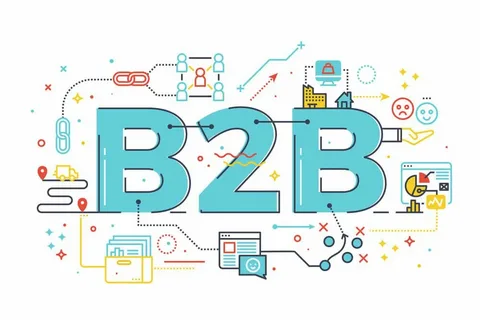
The rapid evolution of technology and buyer behavior continuously changes the face of B2B marketing. In order for businesses reliant on B2B marketing strategies to remain competitive, they must learn to adapt to these changes. Several emerging trends and innovations will continue to shape the future of how companies approach B2B marketing, opening new avenues for engagement, growth, and customer retention.
The Rise of Artificial Intelligence (AI) in B2B Marketing
One of the most exciting developments in B2B marketing is the integration of artificial intelligence (AI). AI can automate and optimize various aspects of marketing, from content creation to lead scoring.
Here’s how AI will shape the future of *B2B marketing:
Personalization at Scale: AI allows companies to make their marketing strategies focused, at an individual level, based on their preferences, behavior, and interactions with the company-even on a large-scale campaign level.
Relevant Ads: For example, will be much more targeted than ever, and so will Professional Ads. Predictive Analytics: AI analyzes data from Essential Cookies, Non-Essential Cookies, and CRM systems to predict behaviors and recommend best next-step activities for lead nurturing.
Chatbots and Automation: AI-powered chatbots will provide instant support 247 and answer queries to improve customer experience and lead conversion rates.
The Continued Growth of Content Marketing
Content marketing is going to remain one of the most crucial elements of B2B marketing strategies. As a matter of fact, the demand for high-quality, informative, and engaging content keeps growing. The future will see businesses focus more on:
Interactive Content: From quizzes to calculators, interactive content is going to be a potent way to engage prospects and collect data.
Video Marketing: The video format will be even more integrated into B2B marketing, where businesses will create webinars, product demos, and tutorials to showcase their services and build trust with their audience.
Voice Search Optimization**: With the rise of voice, *B2B marketers* will have to optimize content to voice searches as buyers start using smart speakers or other voice-enabled devices to make decisions.
Rising Emphasis on Data Privacy and Compliance
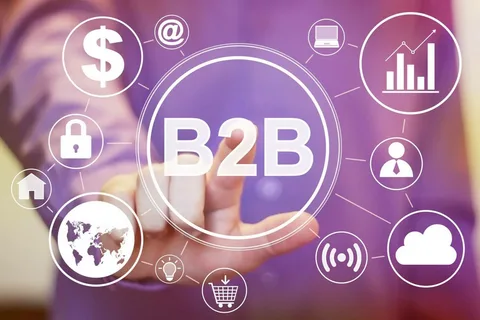
With the increased regulation from GDPR and ever-changing data privacy laws, ethical collection and use of data will be one of the rising focuses in B2B marketing. Companies will have to:
Ensure consent settings and transparency in the use of essential cookies and **non-essential cookies.
Ensure that all personalization in *marketing* respects data privacy laws.
Balance targeted, relevant ads with respect for user privacy.
The Power of Personalization and Customer Experience
Going forward, B2B buyers will require an increasingly personalized experience in the buying process, like that afforded to them by B2C settings. Business firms will have to further evolve their B2B marketing strategies to this end to be able to deliver:
Customized Content: Through the use of data-driven insight in developing content for the interests of, and pain points confronting, different types of buyers.
- Omnichannel Engagement: The delivery of seamless, personalized messaging across multiple touchpoints-email, social media, websites, and offline interactions.
Customer-Centric Services**: Providing more flexible, on-demand *services* to meet the changing needs of businesses operating in a fast-paced, digital-first environment.
The Rise of Account-Based Marketing (ABM)
ABM will continue to be one of the important strategies for B2B marketers. In contrast to the net method, ABM enables companies to: target companies or decision-makers with highly targeted campaigns and relevant ads; create highly personalized professional ads that talk directly to the needs of key stakeholders.
Refine the strategy of ABM using the analytics from cookies and CRM systems for better engagement.
Conclusion
In this ever-changing world of B2B marketing, success relies on the nuances of understanding buyer behavior, new technologies, and how to craft the right marketing strategies. Be it the application of content marketing, using relevant ads, or employing AI-enabled tools, a thoughtfully executed B2B approach can enable one to establish solid, long-term relations with other businesses.
Key Takeaways
B2B marketing involves the sale of products or services from one business to another and thus requires precision in targeting and a tailored message.
B2B marketing strategies** should be personalized, using essential cookies and non-essential cookies to enhance campaigns and show regard for privacy laws through transparency in **consent settings.
The immediate future of B2B marketing will be shaped by data-driven insights provided by tools such as CRM systems, marketing automation, and account-based marketing.
Specify detailed buyer personas and track the engagement to measure the ROI for the optimization of the marketing strategy that will help businesses to drive long-term growth.
But the landscape continuously changes, and so must every company, staying open and reacting to all emerging trends and technologies that will play important roles. Whether you are concentrating on job ads, professional ads, or refining your content marketing efforts, the future of B2B marketing presents very interesting opportunities that can be explored toward finding decision-makers, building trust, and eventually growing one’s business.
Through solid marketing strategy attention and tactics refinement, your business can make a differentiation in the growing competitive environment of B2B Next Blog Post
FAQ
1. What is B2B Marketing?
B2B marketing (business-to-business marketing) refers to the strategies and techniques used by businesses to sell products or services to other businesses. Unlike B2C marketing, which targets individual consumers, B2B marketing focuses on understanding the needs of organizations and decision-makers within them, offering solutions that enhance business performance.
2. How do I create a B2B marketing strategy?
To create a successful B2B marketing strategy, follow these steps:
- Define your target audience by building buyer personas.
- Develop content marketing plans that address the specific challenges and needs of your target businesses.
- Use data-driven insights, including analytics from essential cookies and non-essential cookies, to refine your campaigns.
- Personalize relevant ads and optimize your outreach efforts based on user behavior.
3. Why is content marketing important for B2B?
Content marketing is a cornerstone of B2B marketing because it helps businesses build trust and credibility with their target audience. Providing valuable, informative content such as case studies, white papers, and blogs allows companies to position themselves as thought leaders in their industry, engage potential clients, and drive lead generation.
4. What are the best tools for B2B marketing?
Key tools for B2B marketing include:
- CRM software like Salesforce or HubSpot to manage customer relationships.
- Marketing automation platforms like Marketo to streamline campaigns.
- Content marketing tools like SEMrush for SEO optimization and BuzzSumo for topic discovery.
- Data analytics tools to track performance and refine strategies.
5. How do I measure the success of my B2B marketing campaigns?
Success in B2B marketing can be measured through:
- Lead generation metrics, such as the number of high-quality leads and cost per lead (CPL).
- Conversion rates to assess how many leads become paying customers.
- Engagement metrics like website traffic, time on page, and email open rates.
- ROI (Return on Investment) to determine the profitability of your campaigns.




